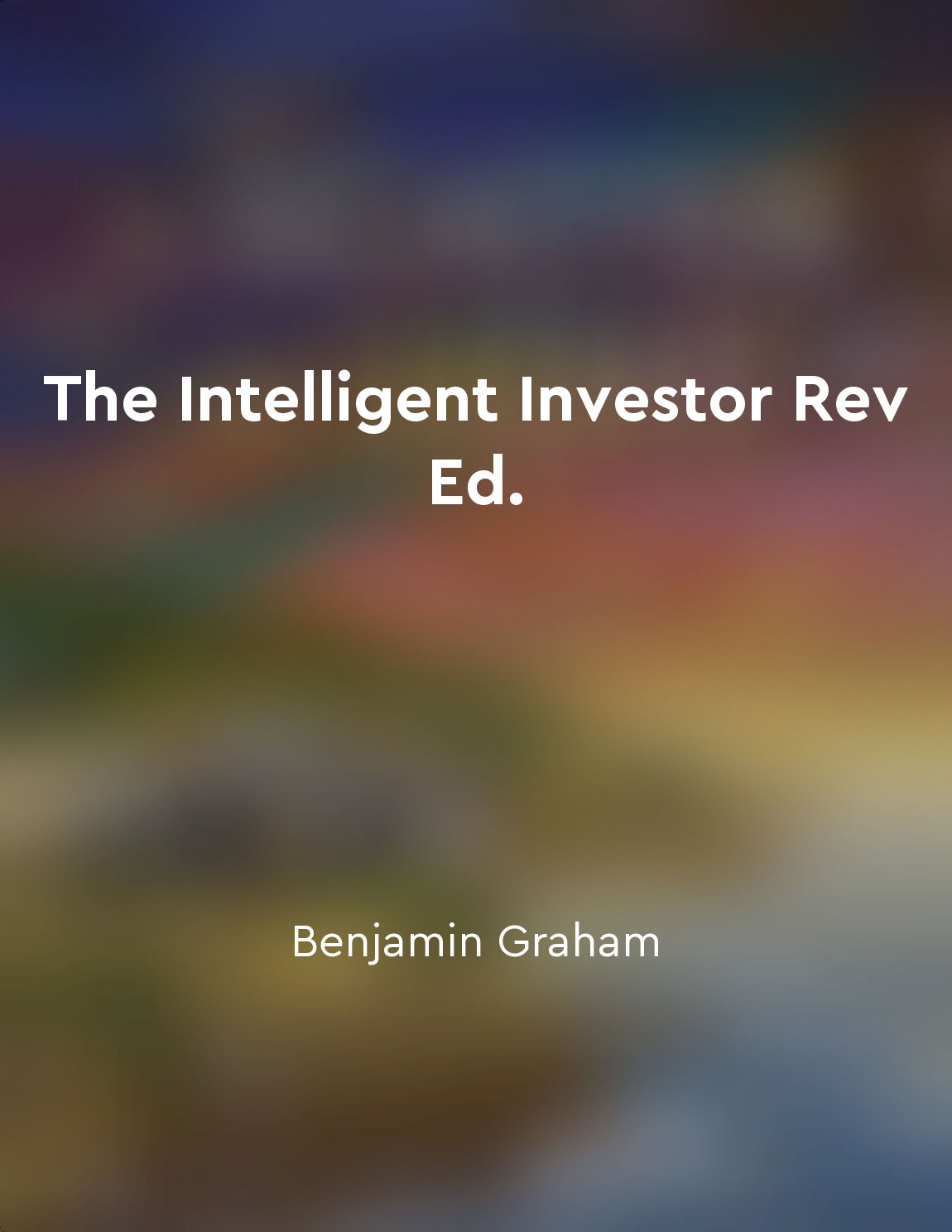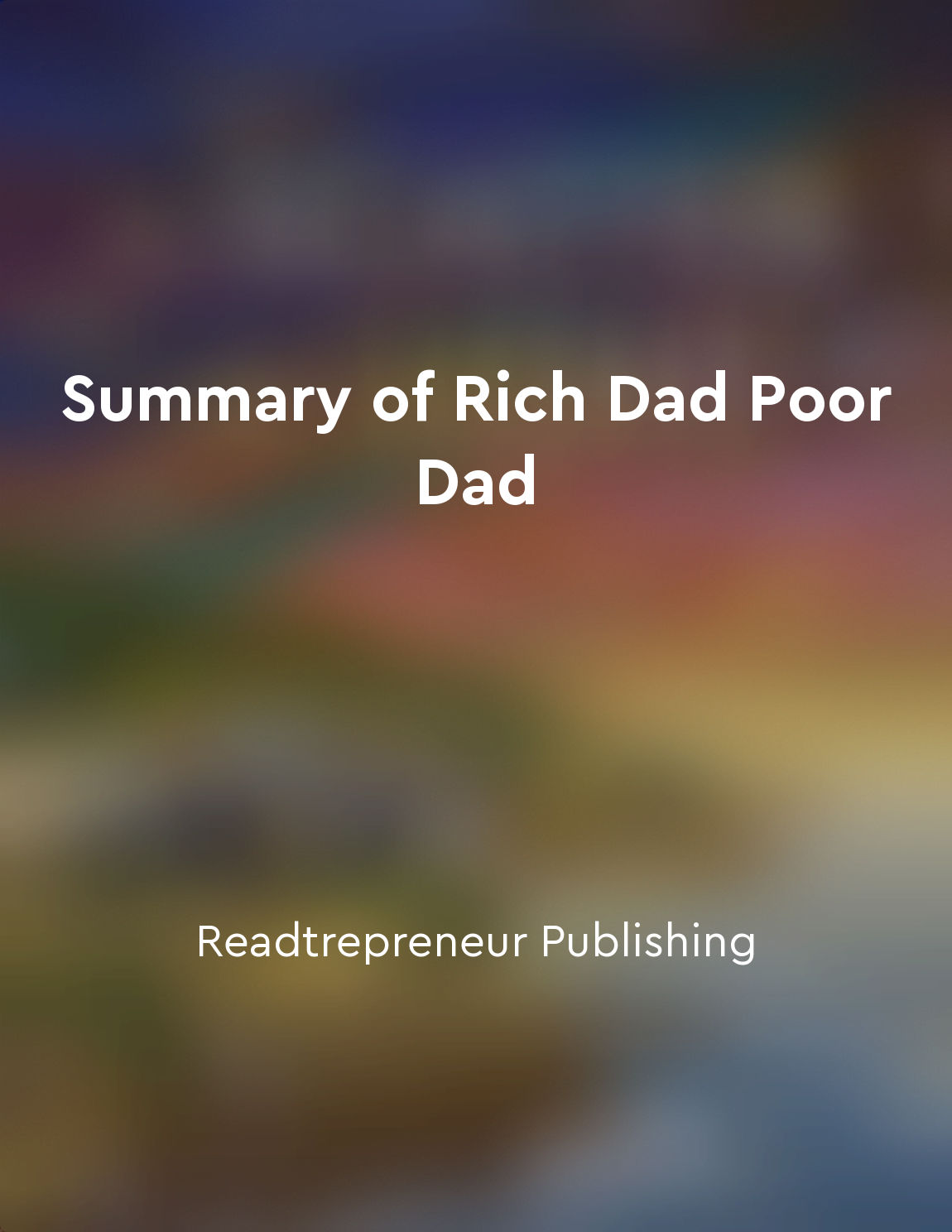Being a passive investor can lead to better returns from "summary" of John Bogle on Investing by John C. Bogle
Passive investors, those who simply buy and hold a diversified portfolio of stocks and bonds, tend to outperform active investors over the long term. By avoiding the frequent buying and selling of investments that come with active management, passive investors can reduce fees and transaction costs, ultimately leading to better returns. This is a key principle that many successful investors have embraced. The concept of passive investing is based on the idea that the financial markets are generally efficient, meaning that stock prices reflect all available information. As a result, trying to beat the market through active trading is not only difficult but also costly. Instead, passive investors accept market returns and focus on minimizing expenses and taxes. One of the main advantages of passive investing is its simplicity. Rather than constantly monitoring the markets and making investment decisions based on short-term fluctuations, passive investors can set and forget their portfolios, allowing their investments to grow over time. This hands-off approach not only saves time and effort but also reduces the emotional stress that often comes with active trading. Another benefit of passive investing is its cost-effectiveness. By holding a diversified portfolio of low-cost index funds or exchange-traded funds, investors can keep expenses to a minimum. This is important because fees and expenses can eat into investment returns over time, especially for active investors who engage in frequent trading. In addition to lower costs, passive investing also offers tax advantages. Because passive investors typically buy and hold investments for the long term, they incur fewer capital gains taxes compared to active investors who frequently buy and sell securities. By minimizing taxes, passive investors can further enhance their returns and achieve better long-term performance.- The concept of passive investing is grounded in the belief that simplicity, low costs, and tax efficiency can lead to better returns over time. By focusing on long-term goals and maintaining a disciplined investment approach, passive investors can benefit from the power of compounding and ultimately build wealth more effectively than their active counterparts.
Similar Posts

Investing is not gambling
Investing in stocks is often seen by many as a form of gambling. The stock market is regarded as a place where one can either m...

The Bretton Woods system established fixed exchange rates postWorld War II
Following World War II, the Bretton Woods system was established to stabilize the global financial system. This system aimed to...
Embrace the journey towards financial independence
The path to financial independence is not just about reaching a specific goal or destination. It is about the journey itself - ...
Manager selection is crucial in achieving investment objectives
The success of institutional investment management largely hinges on the ability to select skilled and competent managers. Thes...
Control your emotions
Investing can be an emotional rollercoaster. It's easy to get caught up in the excitement of a rising market or the fear of a d...

Embrace failure as a learning opportunity
One of the key principles emphasized in Rich Dad Poor Dad is the idea of viewing failure not as something to be feared, but as ...
Prioritize saving and investing
When it comes to building wealth, prioritizing saving and investing is crucial. This means setting aside a portion of your inco...
Psychological biases can influence market trends
Psychological biases can significantly impact market trends. These biases are ingrained in human nature and can lead to irratio...
Study economic and political conditions of countries
To truly understand a country's investment potential, one must delve deep into its economic and political conditions. These fac...
Follow a systematic approach to trading
To be successful in trading, it is essential to have a systematic approach. This means having a well-defined strategy that guid...

